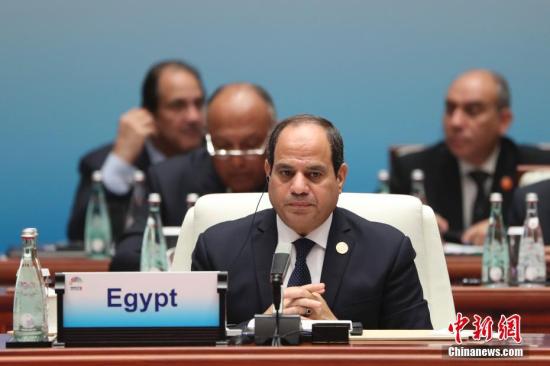Chinanews, July 21. According to the Russian satellite network citing a report from Egypt’s national television station, the Egyptian parliament voted on July 20 to approve an authorization to allow the country’s army to send troops abroad to perform combat missions.
Data map: Egyptian President Sisi. China News Agency reporter Sheng Jiapeng photo
According to reports, the meeting was held behind closed doors and no media representatives attended. Participants unanimously agreed to authorize the Egyptian army to send armed forces abroad to perform combat missions to "attack militants and foreign terrorists in a strategic direction in the west and maintain national security."
According to reports, the parliament that day discussed the results of the Egyptian National Security Council meeting hosted by Egyptian President Sisi on the 19th, as well as the "threat from the west."
Sisi presided over a meeting of the Egyptian National Defense Committee on the 19th. After the meeting, the Egyptian Presidential Palace issued a statement saying that Libya is the priority direction of Egypt's foreign policy, and Egypt will spare no effort to support the Libyan people in their efforts to achieve national security and stability.
According to reports, according to the Egyptian Constitution, the president of the country can declare war or, with permission from the Egyptian Parliament, send Egyptian troops overseas to perform combat missions.
Sisi said at the end of June that Egypt is willing to help the Libyan tribes resist foreign interference, and said that Egypt can train the Libyan army and provide weapons. In response, the Libyan National Unity Government responded that any interference in Libya’s internal affairs and violations of Libya’s sovereignty are unacceptable and will be regarded as an enemy of Libya and “declared war”.
After the Gaddafi regime was overthrown in 2011, the two major forces in Libya confronted each other separately. The national unity government and the armed forces that support it control the capital, Tripoli and other western regions; the National Congress and the "National Army" allied to control the eastern and central regions, major southern cities, and some western cities.

